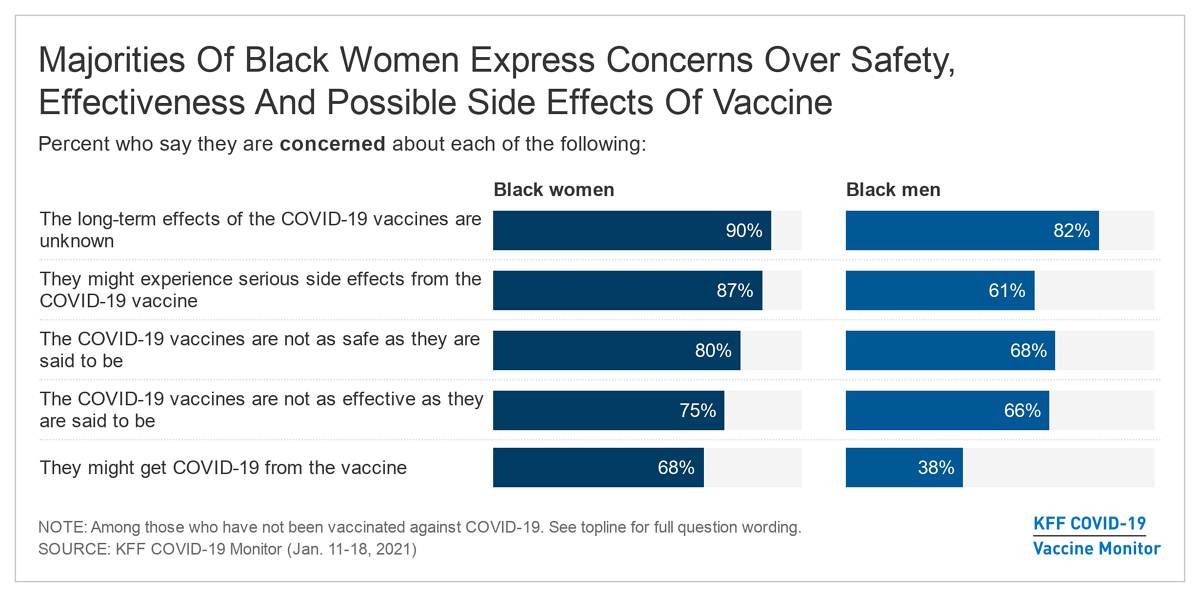The latest from the KFF COVID-19 Vaccine Monitor finds that Black men (45%) and women (41%) are more likely than other groups to want to “wait and see” how the COVID-19 vaccine works for others before getting it themselves, making them a key target for public health officials seeking to boost vaccination rates equitably.
This analysis explores similarities and differences in the attitudes of Black men and women toward COVID-19 vaccination. Highlights include:
- Providing accurate information about side effects may be key to communicating with this group. Among those not yet vaccinated, large shares of Black women (87%) and men (61%) say they are worried they might experience serious side effects from a COVID-19 vaccine. Many Black women (69%) and men (65%) who have not yet gotten the vaccine also say they do not have enough information about vaccine side effects.
- About one in five (19%) Black women say they “definitely will not” get vaccinated for COVID-19, larger than the share of Black men (7%) who say the same. This greater reluctance may be related to Black women’s higher levels of concerns about side effects. In addition, among those not yet vaccinated, many more Black women (68%) than men (38%) say they worry about contracting COVID-19 from a vaccine, suggesting that learning that doesn’t happen could influence their decision.
- About half of Black women (53%) and men (45%) say that they trust the health care system to do what is right for them and their community “only some” or “almost none” of the time. This suggests addressing historic mistreatment and inequities in the vaccine distribution process could help outreach efforts aimed at vaccine hesitancy among both Black women and men.
Available through the Monitor’s online dashboard, the new analysis also probes the messages that make Black men and women more or less likely to want to get vaccinated, as well as their confidence in the fairness of vaccine distribution efforts.
The KFF COVID-19 Vaccine Monitor is an ongoing research project tracking the public’s attitudes and experiences with COVID-19 vaccinations. Using a combination of surveys and qualitative research, this project tracks the dynamic nature of public opinion as vaccine development and distribution unfolds, including vaccine confidence and hesitancy, trusted messengers and messages, as well as the public’s experiences with vaccination.


